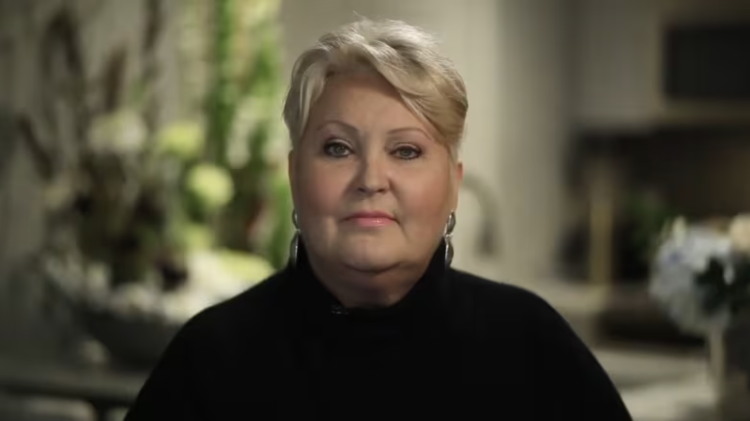

‘Griefwalker’ by Tim Wilson
- Title ‘Griefwalker’ by Tim Wilson
- Author Tim Wilson
- Year 2008
- Language English
- Tags Fear of Death Palliative Care
- Legislative context Criminal Code, 1985, s 241 (Canada)
- Author of entry Robyn Otto
In this 70-minute documentary, Tim Wilson profiles Stephen Jenkinson as he counsels patients receiving end-of-life care. At the time of filming, Jenkinson led a palliative care counselling team at Toronto's Mount Sinai Hospital. The film opens with Wilson sharing a near-death experience. Wilson was inspired to make the film after Jenkinson remarked that Wilson did not speak about his near-death experience, ‘like a man who has been given his life back.’ In the documentary, Jenkinson explains what he sees as the problem of palliative care, which is that palliative care allows the patient to manage their pain but not their fear of death. Jenkinson, who studied at Harvard Divinity School, shares his perspective that the Christian conception of death as punishment for sin has contributed to a Western culture that is ‘death phobic.’ In response to death phobia, Jenkinson encourages embracing death as a gift, where gratitude for life comes from knowing that life will end. For him, embracing death is not just a challenge for those who are terminally ill, but a challenge that everyone must carry. He explains that the challenge is living each day with the knowledge that we will die, and ‘dying well’ when it is our time to die.
The film was released in 2008, eight years before Canada legalized medical assistance in dying, which is not discussed directly in the film. However, Jenkinson describes a pervasive fear of death in Western culture that serves as the background to all discussions of death, including discussions about medical assistance in dying. In other work, Jenkinson discusses being asked to help patients end their lives when he was a counsellor on a palliative care unit. He observes that he was often asked to help patients ‘kill themselves’ not when they were experiencing their worst symptoms, but when palliative care had delivered on its promise to give them more time, but the time gained did not resemble what they anticipated. Many who advocate in favour of medical assistance in dying do so based on the inadequacy of palliative care. Jenkinson’s reflections on these inadequacies do not necessarily lead him to embrace medical assistance in dying – his personal beliefs on assisted dying are left unsaid in Griefwalker – but they do clarify the general worldview which leads some jurisdictions to position palliative care ‘and/or’ medical assistance in dying as sufficiently able to come to grips with the realities of death. For him, the problem of palliative care that focuses on patient choice is not material, but spiritual because it does not enable terminally ill patients to embrace their death, and by extension their life. He states that, ‘When you are dying, you are not in charge of your dying. It’s too big, it’s too mysterious. This is life having its way with you.’ He describes death phobia as the cultural heritage of palliative care, which results in patients pursuing every avenue to avoid death, even when they are ready to die. He opines that, ‘the beautiful thing about your death is that you are playing chess and the best outcome you can possibly hope for is that you are checkmated by the ending of your own days.’ Jenkinson describes this embrace of death as a willingness to die 'on schedule,' which resonates with all practices designed to confront the fear of death.
Suggested citation
-
Griefwalker, Assisted Lab’s Living Archive of Assisted Dying, October 2024 <link>
Reviews
- Griefwalker Documentary, Grief Healing Blog, 2009 → griefhealingblog.com
- Griefwalker: film helps us learn about death while living, Saltwire, 2010 → saltwire.com
- Griefwalker by Tim Wilson, Seven Ponds Blog, 2013 → blog.sevenponds.com
- Griefwalker, Calgary Movies, 2019 → calgarymovies.com
Media citations
- Erik Hoffner, As We Lay Dying, The Sun, 2015 → thesunmagazine.org
- Leslee Goodman, A Good Death: An Interview with Stephen Jenkinson, 2019 → dailygood.org
Interest Group citations
- Griefwalker, Tricycle: The Buddhist Review, 2012 → tricycle.org
- Griefwalker, Death Café, 2014 → deathcafe.com
- Find the Good in Grief, Spirituality & Health, 2017 → spiritualityhealth.com
- Bereavement Support, Widows Foundation, 2019 → thewidowsfoundation.nl
- Movie & Discussion: Griefwalker, Community Death Care Ottawa, 2020 → communitydeathcareottawa.com
- Documentaries Worth Watching, End of Life Doula Association of Canada, 2022 → facebook.com
- Griefwalker, Worldwide Aging Related Programs, retrieved 31 January 2024 → programsforelderly.com
Related Media
Video Statements
The Skill of Brokenheartedness: Euthanasia, Palliative Care and Power - Stephen Jenkinson, Compassion and Choices
- The Skill of Brokenheartedness: Euthanasia, Palliative Care and Power - Stephen Jenkinson, Compassion and Choices youtube.com ↗
Books
Stephen Jenkinson, Die Wise – A Manifesto for Sanity and Soul
- Stephen Jenkinson, Die Wise – A Manifesto for Sanity and Soul orphanwisdom.com ↗
Books
Stephen Jenkinson, How it All Could Be
- Stephen Jenkinson, How it All Could Be orphanwisdom.com ↗
Related Archival Entries
'Audrey Parker’s last message to Canadians' by Audrey Parker

Audrey Parker
In this video statement, Audrey Parker appeals to Canadians to have the MAID laws in place in 2018 changed. Parker felt that she was obliged to receive MAID earlier than necessary due to her fear that she would lose the ability to provide late-stage consent, one of the law’s original stipulations. Audrey’s Amendment was introduced in 2021 eliminating the requirement of late-stage consent.